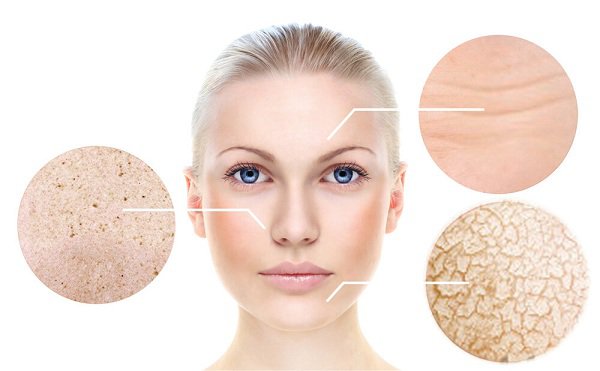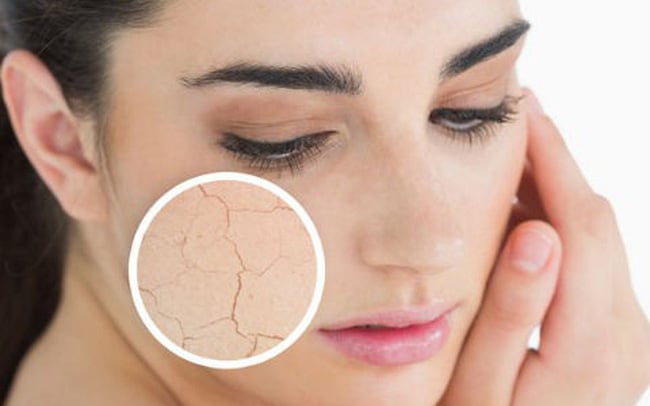Vitamin A deficiency and its impact on the skin
When the body lacks vitamin A, the skin is prone to conditions such as dryness, flaking, increased inflammation, and acne breakouts on the cheeks, arms, and thighs. It is recommended to incorporate foods rich in vitamin A into your diet, such as liver, egg yolks, butter, milk, cheese, water spinach, watercress, kale, pumpkin, carrots, and mangoes.

Vitamin B deficiency and its impact on the skin
– When the body lacks vitamin B2, the skin ages quickly and develops premature wrinkles. Vitamin B2 can be found in red meat, eggs, milk, seaweed, sesame, and almonds. It is important to increase the consumption of these foods.
– Vitamin B3 deficiency affects the synthesis of collagen, resulting in dull, dry, flaky skin that is prone to swelling, inflammation, especially in areas exposed to light. It also weakens the hair, causing it to break and become dry. Foods rich in vitamin B3 include lean pork, turkey, beef, salmon, tuna, and rice fish.

– Vitamin B6 deficiency can lead to insomnia, excessive hair loss, and various skin problems such as rashes, itchy dry skin, and peeling. Vitamin B6 is found in most foods such as tuna, salmon, beef, chicken breast, liver, grains, legumes, mushrooms, bananas, dried fruits, collard greens, and carrots.
– Vitamin B12 deficiency can result in pale skin, fatigue, exhaustion, and depression. It is recommended to increase the consumption of foods such as beef, salmon, eggs, milk, and cheese.
Vitamin C deficiency and its impact on the skin
When the body lacks vitamin C, the skin may develop dark spots, freckles, and becomes more susceptible to sunburn. To increase the intake of vitamin C, it is advisable to consume fruits such as oranges, lemons, strawberries, ripe papaya, kiwi, apples, guavas, peppers, and broccoli.
Vitamin E deficiency and its impact on the skin
There are many types of vitamins that are essential for the body, and each has its specific function. However, the body cannot synthesize these compounds on its own. It is important to pay attention to signs of vitamin deficiencies and adopt a balanced and appropriate diet.





































